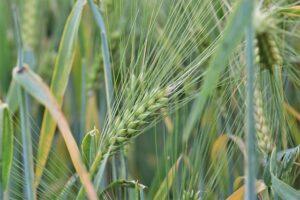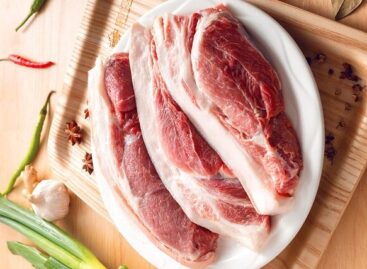This year, GOSZ-VSZT is also helping farmers with objective variety test results
The national post-registration trial of winter wheat and winter cabbage rape has come to an end. The organizers published the results of the objective survey in 2023 in summary publications for those interested.

(Photo: Pixabay)
The National Association of Grain Growers, the Seed Association Interprofessional Organization and Product Council, and the National Chamber of Agricultural Economy once again organized the winter wheat, winter cabbage-rape, and corn variety trials. The results of the latter will be evaluated after the fall harvest. The basic purpose of the experiments is to provide useful, objective information for the producers, thereby helping the selection of varieties. The National Chamber of Agrarian Economy regards the range of varieties included in the experiment as a list of offer varieties, emphasizing that there are many excellent varieties available to producers in addition to the participants. “One of the important components of successful farming is authentic information about the performance of each breed, examining several aspects. For almost two decades now, the GOSZ-VSZT-NAK’s variety experiment system has been a decisive source of information in this regard,” emphasized Géza Takács. The President of the Seed Association’s Interprofessional Organization and Product Council explained: the results of variety experiments covering the entire country in areas with different characteristics can be compared, which is an excellent source of information for farmers with different ecological conditions. Tamás Petőházi, the president of the National Association of Grain Growers (GOSZ), emphasized that variety trial data for canola is now available going back four years, so a wide-ranging database helps with variety selection. According to Balázs Győrffy, the president of the National Chamber of Agrarian Economy (NAK), after last year’s historic drought, it was possible to examine the quantitative and qualitative indicators of rapeseed and wheat varieties in wetter weather conditions this year. For the members of the NAK who deal with arable crop cultivation, the test results of this year and previous years are a great help for the well-founded selection of varieties.
Dozens of varieties have been tested
In the autumn of 2022, 24 early and 25 mid-ripening wheat varieties, i.e. a total of 49 wheat varieties, were sown at 8 locations in the country – Bóly, Füzesabony, Hajdúböszörmény, Martonvásár, Mosonmagyaróvár, Szarvas, Szeged and Szombathely. The range of executors of the experiment was expanded, so in addition to the NÉBIH variety experiment stations, Agresearch Kft. and three breeding institutions joined the work in coded form: the ELKH Agricultural Research Center in Martonvásár, Gabonakutató Nonprofit Kft. in Szeged and Isterra Közép-Európa Kft. in breeders’ breeding gardens in Füzesabony. space for the small-plot experiment. In the case of winter wheat, the study was carried out in the two maturity groups in a three-replicate plot arrangement. Due to the autumn and winter precipitation supply, the herds developed well. Multiple plant protection interventions within the framework of the methodology against fungal diseases were carried out in the experiments. Harvesting was severely hampered by the rains at several stations. In the autumn of last year, a total of 22 autumn cabbage turnip hybrids were set up in two ripening groups at 5 locations – Bozzai, Bóly, Bödönhely, Taktaharkány and Püski – by the specialists of Agresearch Kft. and Agrofil Kft. During the sowing season, the extremely dry weather did not favor the development of plant populations. The real difficulty was caused by the rains and storms during the harvest.
NAK
Related news
The Ministry of Agriculture has issued a notice on the use of ENAR data in support policy
In the case of animal-based subsidies financed from EU funds,…
Read more >Dishes made from Hungarian pork should be on the holiday table!
Not only fish dishes are in the spotlight during the…
Read more >Farmer-centric agricultural policy after 2027 receives unanimous support
The EU member states’ agriculture ministers have adopted Council conclusions…
Read more >Related news
The Christmas season is starting earlier and earlier: value for money is the key
This year, 40 percent of Hungarians brought their Christmas shopping…
Read more >The SZÉP card will also be available in digital form from 2025
From September 1, 2025, a significant change will come into…
Read more >SHEIN’s first Hungarian store has opened
On December 10, 2024, at noon, SHEIN’s first Hungarian store…
Read more >







